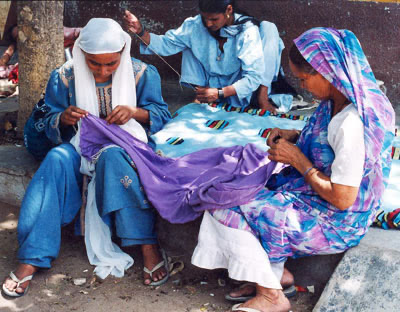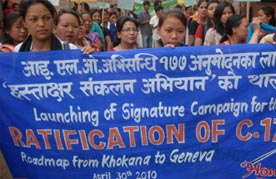
It's has been more than two decades since the adoption of ILO's Home Work Convention (C177) of 1996, but only 10 countries have ratified it.
C177 aims to promote and protect the rights of those who work at home, producing goods for local and/or global value chains. Sub-contracted by firms or or intermediaries, they are usually paid a typically low piece rate.
Countries that have ratified C177
Subcontracted homework is a significant source of income, particularly for women, around the globe. But almost all the countries that have ratified C177 are in Europe - half are in Eastern Europe.
- Albania (2002)
- Argentina (2006)
- Belgium (2012)
- Bosnia/Herzegovina (2010)
- Bulgaria (2009)
- Finland (1998)
- Ireland (1999)
- Macedonia (2012)
- Netherlands (2002)
- Tajikistan (2012)
What Ratification Means
When a country ratifies an ILO Convention, it has signalled that it will amend its laws to meet the standards set out in the Convention, and must report regularly on the implementation of the Convention to the ILO. In 2018, WIEGO worked with the Bulgarian trade union UNITY as they sought to use the ILO reporting mechanisms to push for implementation of C177
In all regions, home-based workers are organizing to gain recognition, and their organizations are mobilizing around C177. WIEGO is supporting those organizations.
More Information
ILO Home Work Convention (C177) policy document
 Promoting the ILO Home Work Convention (C177) and the Rights of Homeworkers: A Manual for Workers’ Educators and Facilitators
Promoting the ILO Home Work Convention (C177) and the Rights of Homeworkers: A Manual for Workers’ Educators and Facilitators